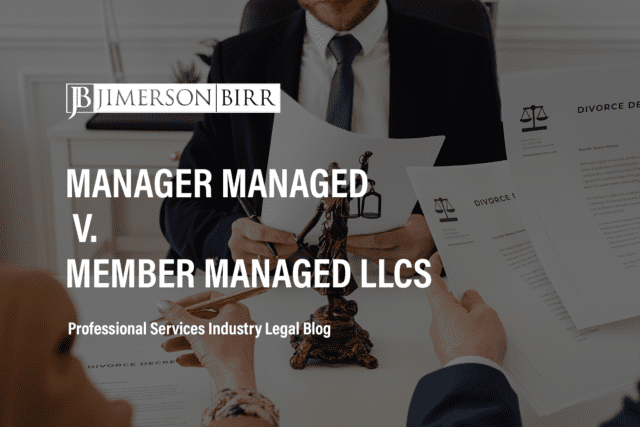What do a board of directors’ structure, composition, operations, compliance, and oversight functions entail?
A board of directors’ structure, composition, operations, compliance, and oversight functions pertain to a company’s board of directors’ composition, selection process, operating procedures, and adherence to relevant laws and regulations. In the context of Florida corporate governance, these aspects fall under the Florida Business Corporation Act and other applicable federal laws.
Need help with a matter related to a board of directors’ structure, composition, operations, compliance, and oversight functions? Schedule your consultation today with a top corporate and board of directors governance and operations attorney.
Which Florida and federal laws and regulations apply to a board of directors’ structure, composition, operations, compliance, and oversight functions?
In Florida, the primary law governing a board of directors’ structure, composition, operations, compliance, and oversight functions is the Florida Business Corporation Act (FBCA). The FBCA provides rules and guidance on the formation, organization, and management of corporations, including provisions related to board composition, director qualifications, election and removal procedures, and fiduciary duties.
In addition to the FBCA, federal laws such as the Sarbanes-Oxley Act and the Dodd-Frank Wall Street Reform and Consumer Protection Act play a significant role in shaping corporate governance practices, including those related to board structure and operations.
These laws and regulations help ensure that boards of directors are held accountable to shareholders and other stakeholders and adhere to established corporate governance practices. By understanding and complying with these legal requirements, boards can effectively carry out their oversight functions and maintain the trust of their shareholders.
What are common issues regarding a board of directors’ structure, composition, operations, compliance, and oversight functions that lead to litigation?
The following issues are among the most common in litigation involving a board of directors’ structure, composition, operations, compliance, and oversight functions:
- Breach of Fiduciary Duties: Directors are expected to act in the company’s and its shareholders’ best interests. Failing to do so can lead to litigation due to conflicts of interest, self-dealing, or gross negligence.
- Failure to Comply with Applicable Laws and Regulations: Boards that fail to follow relevant laws and regulations, such as those related to governance or financial reporting, may be subject to litigation.
- Improper Board Decision-Making: Shareholders may sue boards that make decisions without proper consideration or due diligence, leading to negative consequences for the company.
- Inadequate Oversight of Management: Shareholders may claim that the board failed to provide sufficient management oversight, harming the company.
- Insufficient Board Independence: A lack of independent directors can lead to allegations that the board is not effectively overseeing management and protecting shareholder interests.
What are effective measures to minimize the risk of litigation over a board of directors’ structure, composition, operations, compliance, and oversight functions?
Implementing the following strategies may help mitigate risk:
- Establish Clear Fiduciary Duties: Ensure that directors understand their fiduciary duties and know the consequences of breaching them.
- Promote Board Diversity: Encourage diversity in board composition by considering factors such as age, gender, ethnicity, and experience when appointing directors.
- Ensure Compliance with Laws and Regulations: Implement processes and procedures to review compliance with applicable laws and regulations regularly.
- Foster Sound Decision-Making: Establish a culture of due diligence and informed decision-making by encouraging open communication, thorough research, and thoughtful deliberation.
- Strengthen Oversight of Management: Establish clear expectations for oversight and implement regular reporting mechanisms to keep the board informed of management activities.
- Maintain Board Independence: Ensure that most of the board comprises independent directors to promote objectivity and protect shareholder interests.
- Provide Ongoing Education and Training: Offer regular training and development opportunities for board members to stay current on relevant laws, regulations, and industry best practices.
When a set of facts is appropriate to meet litigation requirements, there are many paths a claimant may take. We are value-based attorneys at Jimerson Birr, which means we look at each action with our clients from the point of view of costs and benefits while reducing liability. Then, based on our client’s objectives, we chart a path to seek appropriate remedies.
To determine whether your unique situation may necessitate litigation, please contact our office to set up your initial consultation.
Frequently Asked Questions
- What role do independent directors play in a board’s structure and composition?
Independent directors are vital to ensuring that a board operates effectively and objectively. They provide an unbiased perspective, and their independence from the organization’s management team can help facilitate more informed decision-making and promote a culture of accountability.
- How can a board remain compliant with all applicable laws and regulations?
Boards should establish regularly reviewed and updated comprehensive compliance programs that align with changes to the regulatory landscape. They should also engage in ongoing education and training to stay informed about relevant legal, regulatory, and industry trends. In addition, working closely with legal counsel can help boards remain aware of their compliance obligations and navigate potential issues.
- How can boards foster a culture of ethical behavior and corporate responsibility?
By establishing a clear code of conduct and ethical guidelines for directors, officers, and employees, boards can lead by example. They should also promote transparency in their decision-making processes and communicate openly with shareholders about the organization’s performance and governance practices. Additionally, implementing robust internal control systems and encouraging whistleblowing can help detect and address potential misconduct within the organization.
Have more questions about governance or operations for your business?
Crucially, this overview of a board of directors’ structure, composition, operations, compliance, and oversight functions does not begin to cover all the laws implicated by this issue or the factors that may compel the application of such laws. Every case is unique, and the laws can produce different outcomes depending on the individual circumstances.
Jimerson Birr attorneys guide our clients to help make informed decisions while ensuring their rights are respected and protected. Our lawyers are highly trained and experienced in the nuances of the law, so they can accurately interpret statutes and case law and holistically prepare individuals or companies for their legal endeavors. Through this intense personal investment and advocacy, our lawyers will help resolve the issue’s complicated legal problems efficiently and effectively.
Having a Jimerson Birr attorney on your side means securing a team of seasoned, multi-dimensional, cross-functional legal professionals. Whether it is a transaction, an operational issue, a regulatory challenge, or a contested legal predicament that may require court intervention, we remain a tireless advocate every step of the way. Being a value-added law firm means putting the client at the forefront of everything we do. We use our experience to help our clients navigate even the most complex problems and come out the other side triumphant.
If you want to understand your case, the merits of your claim or defense, potential monetary awards, or the amount of exposure you face, you should speak with a qualified Jimerson Birr lawyer. Our experienced team of attorneys is here to help. Call Jimerson Birr at (904) 389-0050 or use the contact form to schedule a consultation.
Here are some blogs written by JB attorneys that provide more information about a board of directors’ structure, composition, operations, compliance, and oversight functions:

We live by our 7 Superior Service Commitments
- Conferring Client-Defined Value
- Efficient and Cost-Effective
- Accessibility
- Delivering an Experience While Delivering Results
- Meaningful and Enduring Partnership
- Exceptional Communication Based Upon Listening
- Accountability to Goals











